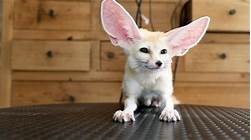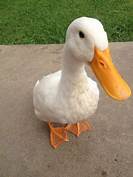Can You Have a Raccoon as a Pet in Michigan?
Raccoons are wild animals known for their mischievous and curious nature. While some people find them endearing and may consider keeping them as pets, it's essential to understand the legal and practical considerations surrounding raccoon ownership in Michigan.

Legal Status of Raccoon as Pets in Michigan
1. State Regulations: Michigan's Department of Natural Resources (DNR) regulates the possession and keeping of wild animals, including raccoons. Under Michigan law, it is illegal to keep raccoons as pets without a valid permit from the DNR.
2. Permit Requirements: To obtain a permit, you must meet specific criteria, including having adequate facilities, experience, and knowledge to care for a raccoon. The DNR also requires a background check, criminal history review, and inspection of the proposed enclosure.
Practical Considerations of Raccoon Ownership
1. Wild Animal Nature: Raccoons are wild animals and can exhibit unpredictable behavior. They can become aggressive, especially during mating season or when feeling threatened.
2. Special Needs: Raccoons have specific dietary, housing, and socialization requirements. They need a large enclosure with climbing structures, swimming areas, and access to natural food sources. Providing proper care can be time-consuming and expensive.
3. Health Concerns: Raccoons can carry diseases transmissible to humans and other animals. Proper handling, vaccination, and regular veterinary care are essential to minimize health risks.
Alternatives to Raccoon Ownership
1. Wildlife Rehabilitation: If you encounter an injured or orphaned raccoon, you can contact a licensed wildlife rehabilitator who can provide care and release the animal back into the wild.
2. Outdoor Observation: Enjoying raccoons in their natural habitat, such as parks, forests, or wetlands, is a responsible and rewarding way to appreciate these fascinating creatures.
3. Education and Advocacy: Supporting organizations that promote raccoon conservation and education can help protect these animals and their habitats.
Conclusion
While raccoons may seem charming and cuddly, keeping them as pets in Michigan is legally restricted and practically challenging. Respecting their wild nature, fostering responsible wildlife interactions, and appreciating raccoons in their natural environment are ethical and safe ways to interact with these animals.
Declaration: All article resources on this website, unless otherwise specified or labeled, are collected from online resources. If the content on this website infringes on the legitimate rights and interests of the original author, you can contact this website to delete it.





